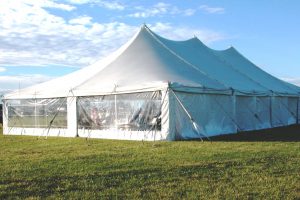Delaware’s Chautauqua tent shows move to September during 2018
–“All Aboard: Delaware and the Railroad” to take place from Sept. 13 to 15, 2018–
Delaware’s Chautauqua tent shows, traditionally held in June, have been moved to September during 2018. Entitled “All Aboard: Delaware and the Railroad,” the three-day series of programs will explore the importance of railroads to America’s economy and way of life, and their impact in Delaware. Now in its 20th year, Delaware’s Chautauqua will take place from Sept. 13 to 15, 2018 and will be split between two Lewes, Del. locations: the Zwaanendael Museum, located at 102 Kings Highway, and the Lewes History Museum, located at 101 Adams Ave. Admission is free and open to the public. For information, call 302-645-1148. Additional information will be released to the media and published on the Delaware Division of Historical and Cultural Affairs website as it becomes available.

Co-sponsored by the Delaware Division of Historical and Cultural Affairs and the Lewes Historical Society, the 2018 Chautauqua will be held under a large tent and will be headlined by re-enactors from the American Historical Theatre who will take on the personas of celebrated historical figures, educating and entertaining audiences as they bring the past to life. Audience members are encouraged to ask questions and interact with the featured characters who will include a Harvey Girl, one of the thousands of young women who were recruited to work as waitresses in Fred Harvey’s chain of restaurants located along railroad lines in the American West during the late-19th to the mid-20th century; Joshua Lionel Cowen, the founder of the Lionel Corporation which manufactured toy trains; and American author Mark Twain who will share his humorous thoughts on railroads.

Chautauqua takes its name from a series of adult education programs that were first held at a campsite on the shores of Lake Chautauqua in upstate New York during the late 19th century. Chautauquas spread throughout America in the late 19th and early 20th centuries bringing speakers, teachers, musicians, entertainers, preachers and specialists of the day to a wide cross-section of the nation’s rural and small-town population. Circuit Chautauquas (also known as Tent Chautauquas) were an itinerant manifestation of the movement. Programs would be presented in tents pitched in a field near town. After several days, the Chautauqua would fold its tents and move on to the next community. The popularity of Chautauquas peaked in the mid-1920s, after which radio, movies and automobiles brought about the gradual disappearance of the movement by the 1940s.
Reborn in the 1970s as a vehicle for humanities education, modern Chautauquas are organized around a core program in which re-enactors portray celebrated historical figures, speaking and interacting with audiences. Modern Chautauquas have been presented annually in Delaware since 1999 featuring a wide variety of historical figures including Woodrow Wilson, Teddy Roosevelt, Abraham Lincoln; Amelia Earhart; Dolley Madison; Eleanor Roosevelt; Edgar Allan Poe; the Lone Ranger; John Philip Sousa; and Delaware’s own Pvt. James Elbert, Maj. Allen McLane, F.O.C. Darley and Clifford Brown.

The Zwaanendael Museum was built in 1931 to commemorate the 300th anniversary of the state’s first European colony, Swanendael, established by the Dutch along Hoorn Kill (present-day Lewes-Rehoboth Canal) in 1631. Designed by E. William Martin (architect of Legislative Hall and the Hall of Records in Dover), the museum is modeled after the town hall in Hoorn, the Netherlands, and features a stepped facade gable with carved stonework and decorated shutters. The museum’s exhibits and presentations provide a showcase for Lewes-area maritime, military and social history.

The Lewes Historical Society is committed to promoting the preservation, interpretation and cultural enrichment of Lewes, Del.—one of America’s most historic towns. As part of its mission, the society operates the Lewes History Museum and maintains several beautifully restored historic properties dating from 1665 to 1898. Open for public visitation, these sites, in conjunction with the society’s educational programs and special events, help to tell Lewes’ story of maritime adventure, architectural elegance and over 375 years of colonial charm.


